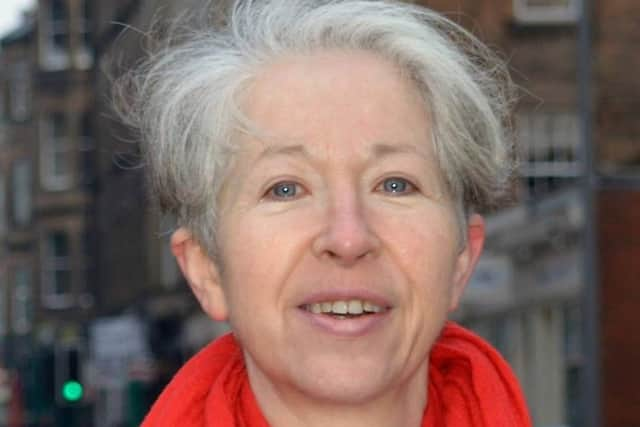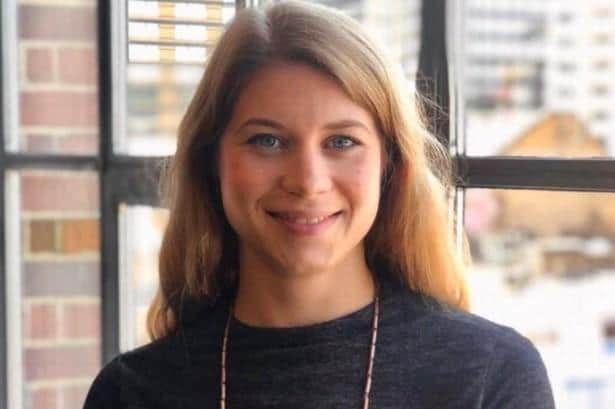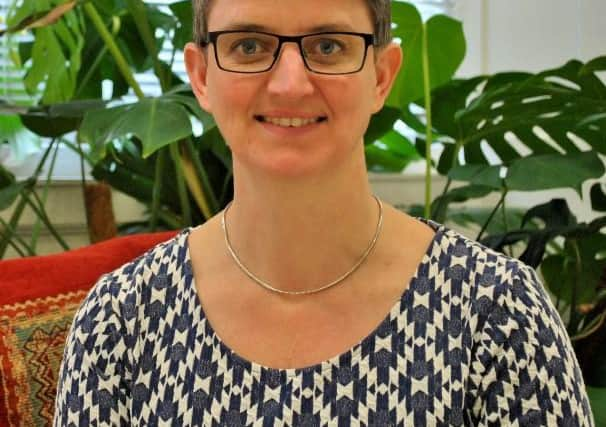'Women do feel afraid when they’re out cycling, and walking, standing at a bus stop at night' says Edinburgh councillor
and live on Freeview channel 276
Let us know what you think and join the conversation at the bottom of this article
Morningside councillor Mandy Watt is calling on the council to ‘bring women’s safety in public spaces to mainstream attention’, by specifically considering women’s safety in risk assessments, and launching a consultation into which areas of the city make women feel unsafe.
Councillor Watt said: “Edinburgh is really pushing the policy of active travel and trying to get people to give up their cars, and walk, and cycle, and use public transport - and completely missing from this conversation so far has been: how can we make this safer for women?


“Women do feel afraid when they’re out cycling, and walking, standing at a bus stop at night, and we need to make that safer because what happened to Sarah Everard was absolutely devastating for her family and heart-breaking for women, who have for the past 30 years been marching to reclaim the night and saying this is an issue, and who haven’t been listened to.
“We really need to start talking about how we can make it safer for women to travel actively and to be in public spaces without being harassed, molested, and even attacked.”
Now, councillor Watt has lodged a motion with the local authority, which will be heard at a full meeting of Edinburgh City Council on Thursday April 29.


It reads: “Council deeply regrets that it has taken the murder of Sarah Everard and Wenjing Lin to bring women’s safety in public spaces to mainstream attention across the country.
“The council notes the need for structural change across society and its institutions ought not to be used as a reason for doing nothing in response to this problem.
“The council agrees to bring a report to the policy and sustainability committee within two cycles, detailing any actions to improve women’s safety, including embedding considerations within risk assessments, placemaking and any other organisational changes to positively impact safety of women in Edinburgh.
“This report should identify options for a consultation around the public places and spaces in Edinburgh where women feel safe, where they feel less safe and what can be done to improve their safety. With actions being reported back to the appropriate committee.”


Maggie Chapman, chief operating officer at Edinburgh Rape Crisis Centre, said women’s safety in the capital is an ‘important issue’ and backed the motion.
She said: “The safety of women must be viewed as everyone’s responsibility, and all of our civic and democratic institutions should believe women and take gender equality seriously.
“We all need to recognise that patriarchal structures are embedded in and taken for granted by so many cultures and organisations.
“We know that women bear the brunt of all forms of inequality. We also know that gender-based violence is a result of gender inequality.
“The council, with responsibility for housing, social care, education, planning and so many other key areas of our lives, needs to be taking action to ensure such inequality is not reproduced and reinforced by its policies.
“We all need to remember that it is never acceptable to blame women for being attacked or assaulted. It is not a woman’s fault if she is attacked, and no amount of safety advice – even if well-intentioned – will keep all women safe.
“Women are not the problem. Instead, we should focus on culture change – on educating and designing gender based violence out of all of our institutions, communities and neighbourhoods.
“ERCC looks forward to working alongside the City of Edinburgh Council as it takes appropriate action to improve women’s safety across the city.”
Recently, a walking and cycling charity lauded the council’s controversial Spaces for People and low traffic neighbourhood schemes as innovative ways to improve women’s safety in public spaces.
More than 70 per cent of women of all ages, and 97 per cent of women aged 18-24, have experienced sexual harassment in public spaces in the UK, according to a UN report.
According to Sustrans, one of the principle consultees of Edinburgh City Council’s Spaces for People programme, many public green spaces and public paths have reduced sight lines and overshadowed places, which can make them dangerous for women, particularly at night.
Liberton and Gilmerton councillor Lesley Macinnes, transport and environment convener, said: “I share councillor Watt’s dismay that many women still feel vulnerable or unable to walk or cycle safely on city streets.
“It’s a sad state of affairs that we continue to hear from women and other members of minority groups or those with mobility issues who feel afraid to walk or use public transport for fear of harassment, and opt instead for private car journeys.
“This is on top of the fact that far fewer women than men cycle regularly.
“We have ambitious plans for the future of transport and mobility in Edinburgh, which respond to challenges posed by climate change, population growth and poor air quality, amongst other issues.
“The safety, security and peace of mind of women and other members of society who feel unsafe in any situation will be a key consideration as we develop and design better streets, routes and spaces for the future.
“We want everyone to share in the social, financial and health benefits of walking, cycling and wheeling.
“Studies have shown that inclusive design can help provide environments that are less tolerant of violent crime, and this will be foremost in our minds as we move forward with plans across the city.”
City Centre councillor, and the Labour transport and environment vice convener, Karen Doran, said: “We’re working hard to make Edinburgh a truly welcoming and inclusive place, where all members of society feel safe to wait for the bus, cycle to work or walk to their front door in the evening.
“Short term, our Spaces for People programme has been about quickly introducing measures to help people from all areas and backgrounds to make essential journeys and exercise by foot, bike or wheel safely.
“In the long term we’re delivering schemes to bring our historical streets up to date and connect outlying communities, including the transformation of George Street to create well-lit, animated spaces or the delivery of safer, more open routes and public places under the West Edinburgh Link project.”